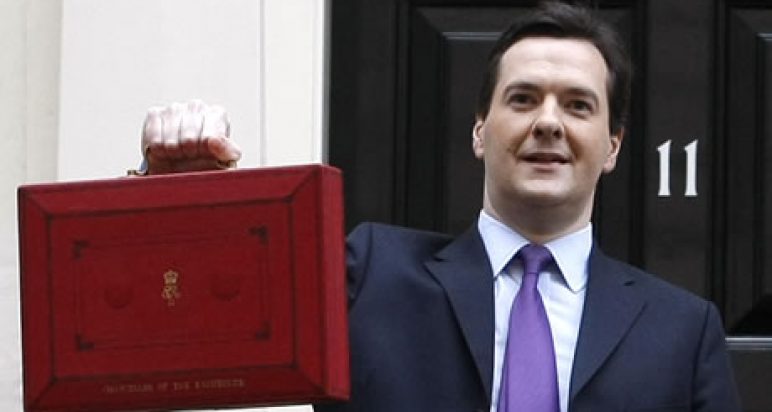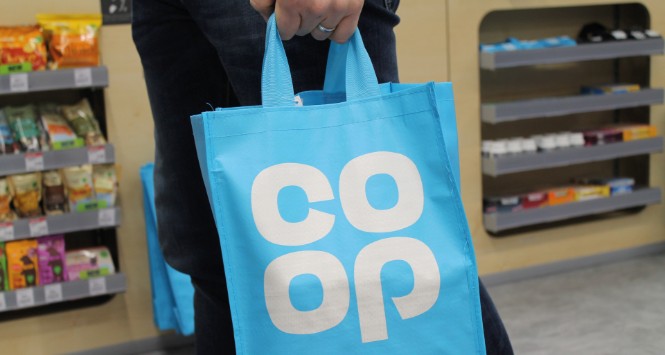A new National Living Wage and a boost to SME investment were the stand out measures for local retailers in the first Conservative Budget in 18 years.
Chancellor George Osborne announced a raft of expected measures as he attempts to steer the UK towards a budget surplus by 2018.
Among measures to boost the UK economy was the launch of a National Living Wage, which will see over 25s paid a premium on the National Minimum Wage. It will start at £7.20 in April 2016, growing to £9 in 2020. The rate is effectively a new NMW for over 25s, 70p higher than the current figures and 50p higher than the rate that will be introduced in October this year.
It is expected that 2.7m people will receive a pay rise, many of them staff in local retailers. According to Treasury figures, someone working a 35 hour week in 2020 will be £5,200 better off than today.
The cost will need to be picked up by business owners, leaving questions hanging on how many retailers will be able to afford the new rate, leading to fears of job losses.
The SGF said the move would place a tremendous burden on local retailers and may even lead to a number of stores closing.
SGF Chief Executive Pete Cheema said, “What the Chancellor has actually done is shift the burden of payment from the Government to the Employer. The introduction of the National Living Wage is a reckless policy, which could have a disastrous effect on the retail industry, especially in times of austerity.”
The Association of Convenience Stores also criticised the decision, calling it a reckless measure that will have a significant negative impact on the sector.
ACS Chief Executive James Lowman said: “The introduction of a compulsory ‘Living Wage’ will have a devastating impact on thousands of convenience stores. This will lead to retailers having to reduce staff hours, work more hours in their business and ultimately cancel their investment plans. To introduce this measure with no consultation undermines the independent Low Pay Commission and is a reckless way to impose a massive burden on small businesses.”
NFRN National President Ralph Patel reported that following the last increase in the minimum wage many NFRN members had to cut staff hours. “Our members understand the importance of the minimum wage to employees, but many shopkeepers are struggling to pay themselves that in the first instance.”
David Lonsdale, Director of the Scottish Retail Consortium, called the Budget a “mixed bag”, commenting: “Lower prices in shops and at the petrol pump and a more optimistic outlook for jobs have yet to translate into increased consumer spending at shop tills in Scotland. The Budget measures to support family finances and consumer confidence including the increase in the personal tax allowance and freeze in fuel duty are therefore positive.”
He said that the proposed reductions in corporation tax to 18% were welcome but for every £1 paid in corporation tax retailers fork out £2.30 in business rates. “With one in every ten shops lying vacant in Scotland it is time for our politicians to apply radical thinking to overhauling and reducing business rates,” he added.
The Government also announced plans to set the Annual Investment Allowance at £200,000, which will allow retailers to claim the tax back on any investment in their business that covers equipment or other development capital. After growing from £100,000 to £500,000 over the last five years, the AIA was set to be cut to £25,000 at the end of the year, but this announcement means retailers can enjoy the £200,000 AIA permanently.
Elsewhere, the Chancellor announced the creation of a new national alcohol control room and a mobile taskforce which will tackle alcohol diversion fraud at duty-suspended warehouses and cash and carrys. The government estimates that the taskforce will reduce the duty revenue lost to alcohol fraud by £840m over six years.
The government will also expand the number of criminal investigation teams in HMRC working on tobacco fraud by 50% and recruit additional Crown Prosecution Service staff to manage additional prosecutions.
FWD chief executive James Bielby said: “This announcement acknowledges the huge effect that illicit trade has on the national purse and on those wholesalers and retailers who trade within the law. Reducing alcohol fraud by £845m over six years is good news for taxpayers and excellent news for the legitimate trade.
In other measures, the tax free personal allowance will be raised to £11,000 next year and thereafter, it will rise in line with inflation.








